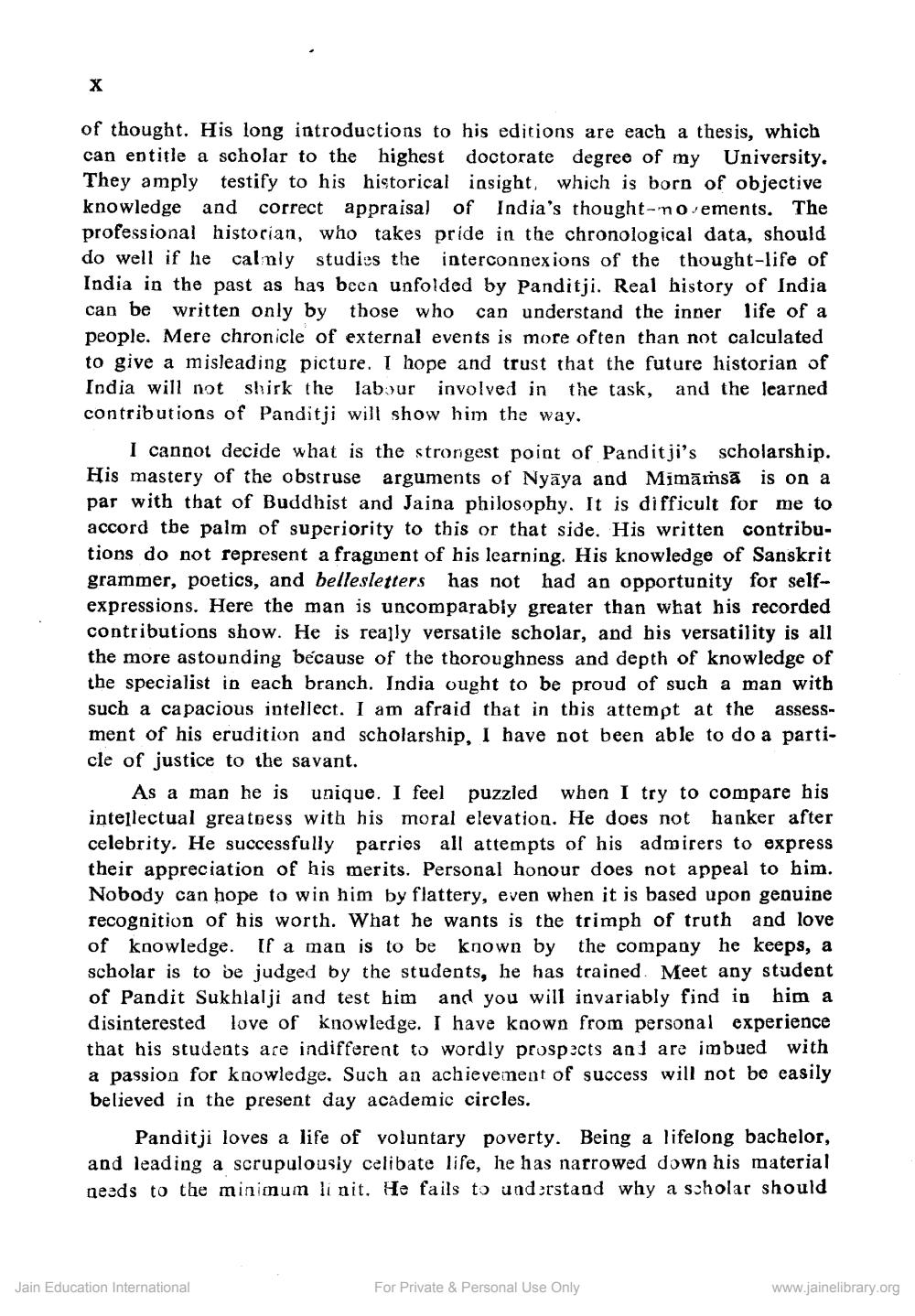________________
of thought. His long introductions to his editions are each a thesis, which can entitle a scholar to the highest doctorate degree of my University, They amply testify to his historical insight, which is born of objective knowledge and correct appraisal of India's thought-o,ements. The professional historian, who takes pride in the chronological data, should do well if he calmly studies the interconnexions of the thought-life of India in the past as has been unfolded by Panditji. Real history of India can be written only by those who can understand the inner life of a people. Mere chronicle of external events is more often than not calculated to give a misleading picture. I hope and trust that the future historian of India will not shirk the labour involved in the task, and the learned contributions of Panditji will show him the way.
I cannot decide what is the strongest point of Panditji's scholarship. His mastery of the obstruse arguments of Nyäya and Mimāṁsā is on a par with that of Buddhist and Jaina philosophy. It is difficult for me to accord tbe palm of superiority to this or that side. His written contributions do not represent a fragment of his learning. His knowledge of Sanskrit grammer, poetics, and bellesletters has not had an opportunity for selfexpressions. Here the man is uncomparably greater than what his recorded contributions show. He is really versatile scholar, and his versatility is all the more astounding because of the thoroughness and depth of knowledge of the specialist in each branch. India ought to be proud of such a man with such a capacious intellect. I am afraid that in this attempt at the assessment of his erudition and scholarship, I have not been able to do a particle of justice to the savant.
As a man he is unique. I feel puzzled when I try to compare his intellectual greatness with his moral elevation. He does not hanker after celebrity. He successfully parries all attempts of his admirers to express their appreciation of his merits. Personal honour does not appeal to him. Nobody can hope to win him by flattery, even when it is based upon genuine recognition of his worth. What he wants is the trimph of truth and love of knowledge. If a man is to be known by the company he keeps, a scholar is to be judged by the students, he has trained. Meet any student of Pandit Sukhlalji and test him and you will invariably find in him a disinterested love of knowledge. I have kaown from personal experience that his students are indifferent to wordly prospects and are imbued with a passion for knowledge. Such an achievement of success will not be easily believed in the present day academic circles.
Panditji loves a life of voluntary poverty. Being a lifelong bachelor, and leading a scrupulously celibate life, he has narrowed down his material needs to the minimum li nit. He fails to understand why a scholar should
Jain Education International
For Private & Personal Use Only
www.jainelibrary.org




